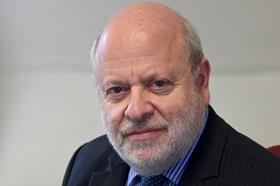The march of the Wagner group on Moscow and an op-ed piece in the Wall Street Journal by a justice of the US Supreme Court might seem to have nothing in common. But they each have lessons for our profession in making sure that we are aware of others’ criticisms of our ethical behaviour, and so respond appropriately.

Both events took place in a surprising week, and I will deal with them chronologically, beginning with the Wall Street Journal article by Justice Samuel Alito (tinyurl.com/2p9khj8f). This came out before an article on his activities was due to appear in a news outlet called ProPublico (tinyurl.com/2fmbfusa), headlined: ‘Justice Samuel Alito Took Luxury Fishing Vacation With GOP Billionaire Who Later Had Cases Before the Court’. The trip had not previously been disclosed by the justice, and ProPublico says that the billionaire’s hedge fund came before the court at least 10 times afterwards in cases asking for rulings one way or the other.
The billionaire is a Republican donor and the justice flew on the donor’s private jet for the fishing expedition. Apparently, the flight would have cost more than $100,000 one way if the justice had chartered it himself, and the cost of the fishing lodge was more than $1,000 a day.
In his pre-emptive defence, the justice said that he was not required to recuse himself from those cases nor to disclose the travel (tinyurl.com/2c78d3ut). He claimed that he did not know that the billionaire was concerned in the cases (despite, as the New York Times pointed out, the billionaire’s interest being widely reported at the time in at least one case). He added that the private jet seat would otherwise have been vacant, that his accommodation was in a modest one-room unit at ‘a comfortable but rustic facility,’ and that ‘the meals were home-style fare’.
Most interestingly, the justice attacked the legal profession for not standing up for him: ‘The idea has always been that judges are not supposed to respond to criticisms, but if the courts are being unfairly attacked, the organized bar will come to their defense … if anything, they’ve participated to some degree in these attacks.’
Trust in the US Supreme Court is falling to lows not seen for decades. There were other reports made recently in relation to large undisclosed gifts received by another justice, Clarence Thomas. It seems obvious to outsiders that if the justices do not pretty smartly begin to regulate themselves to higher standards, then standards will be imposed on them.
And so we come to the Wagner group. As Yevgeny Prigozhin’s group was advancing on Moscow at the weekend, someone on Twitter had the bright idea to remind us of a Financial Times article from earlier this year, headed ‘Wagner Inc: a Russian warlord and his lawyers’ (tinyurl.com/2mk8a96u).
The article introduces Prigozhin as an ex-convict and founder of a private mercenary operation that offers fire-power to dictators around the world, waging war in the Middle East and Africa as an unofficial foreign policy tool of the Kremlin. In every combat zone in which Wagner mercenaries have appeared, allegations have quickly surfaced of human rights abuses, including summary executions, torture, rape and murder. He also runs a mining multinational that includes, according to the US government, gold, diamonds, oil and lumber operations across Syria, Sudan and the Central African Republic. He is one of the most sanctioned individuals on the planet, and western governments have worked hard to shut down his companies.
However, Prigozhin has used leading corporate lawyers around the world to try to keep western governments at bay. The FT names English lawyers and law firms which represented Prigozhin in his attempt to deny that he was head of the Wagner group – something which he later came out and openly admitted was true, for instance when he toured Russian prisons to recruit prisoners for his forces fighting in Ukraine. His connection with Wagner was widely reported on before his admission, and the cases that were brought on his behalf were based on a lie.
The FT reports that, once Russia invaded Ukraine, the western lawyers began to withdraw from representation.
Hardly a day goes by when I am not engaged in arguments with lawyers around the world about where lawyers’ duties lie in such cases. I have heard all the arguments now: from the right to representation to the cab-rank rule to ‘but it’s not unlawful’.
These arguments ring in my ears like Justice Alito’s claims that the aircraft seat would have been empty and that the food served was home-style fare.
We can go on persuading ourselves for as long as we want how virtuous we are, but if others don’t believe us (and they don’t), they will soon sort out our ethics for us. A lawyer also serves justice.
Jonathan Goldsmith is Law Society Council member for EU & International, chair of the Law Society’s Policy & Regulatory Affairs Committee and a member of its board. All views expressed are personal and are not made in his capacity as a Law Society Council member, nor on behalf of the Law Society































2 Readers' comments